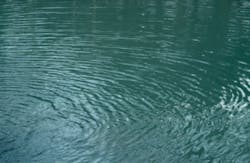Kansas farmers voluntarily cut back on water to reduce consumption
CHICAGO, Ill. — As many western Kansas wells are drying up after nearly three years of drought in some areas, corn farmers are reducing their water use voluntarily to prolong a water decline projected to start in 2040, according to an article in The Economist.
Researchers at Kansas State University (KSU) have found that water in the Ogallala Aquifer, which runs from South Dakota to Texas, was only depleted by three percent in 1960, but 30 percent had been used by 2010, the article reported.
According to the article, consumption of the aquifer will peak in 2025, but due to increased efficiency of water use, farm productivity will rise until 2040.
Many farmers, reported the article, are voluntarily cutting back productivity to delay the peak of water consumption longer.
Kansas governor Sam Brownback has been responsible for a series of laws that have improved water efficiency for farm irrigation in the past few years, the article noted.
Read the full article on The Economist.
